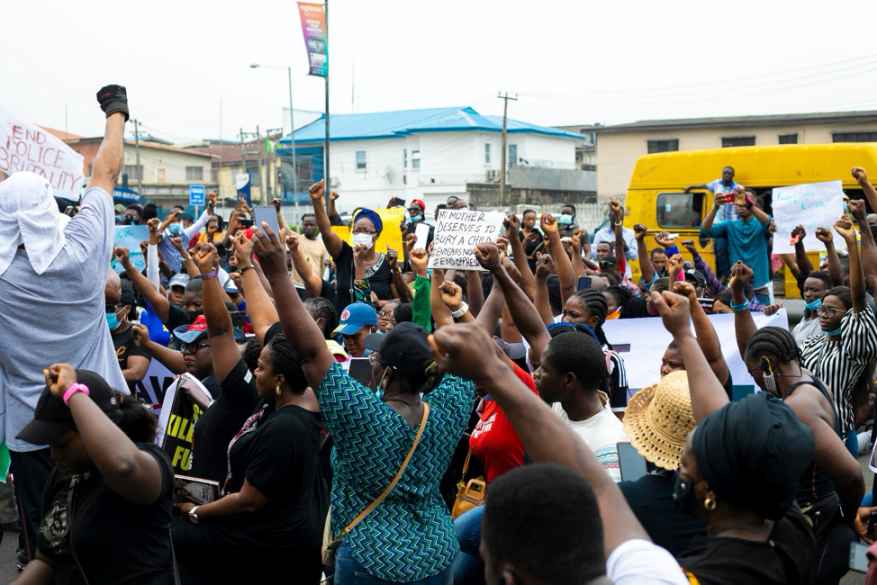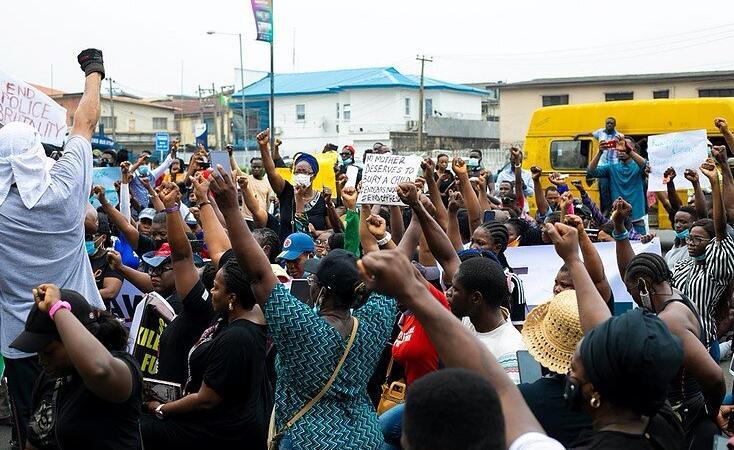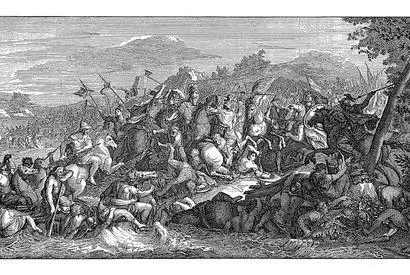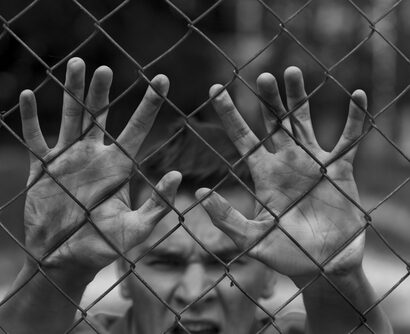Abstract: Apart from attracting attention from international media and foreign governments, the recent youth uprising in Nigeria occasioned by the call for police reform rattled its federal and state governments. It similarly queried the fundamental principles in regard to policing in Nigeria. Most observers described the development as a movement that pushed Nigerian authorities to the edge. In other words, it shook Nigeria to its foundations. Under a historical lens, this paper argues that police brutality predates the establishment of the Special Anti-Robbery Squad (SARS), a unit under the Nigerian Police Force. In Nigeria, police brutality is deeply rooted in colonial and post-colonial policing philosophy. As such, this article also attempts to analyse the remote and proximate factors which underlie the EndSARS protests. Furthermore, it will cover potential outcomes of the protests, divergent pathways for the movement, and ways forward for the government in meeting protestor demands.
Bottom-line-up-front: Police brutality and impunity by the Nigerian Police Force goes beyond the disbanded notorious and dreaded SARS subdivision. At its core, it is rooted in the existence of the country. That being said, in order to avoid a state of total anomie, there is a need for systemic reform which puts into consideration civilian’s yearnings and concerns.
Problem statement: How to understand both the genesis of police brutality in Nigeria and the EndSARS movement’s root-causes?
So what?: Moving forward, it is important for the country’s youth to continue to demand for a responsive and accountable police force. The internet, specifically social media, has presented a medium whereby young Nigerians can continuously engage and mount pressure on the government to demand change from the current policing style. Another significant aspect this paper highlights is the need for a systemic reform designed to correct the anomalies attributed to Nigeria’s system of governance.

Source: shutterstock/Teo-Inspiro International
History of police brutality in Nigeria
Policing in Nigeria can be categorised into the following two dimensions: colonial and post-colonial policing. Notably, prior to the widespread colonisation of Africa, its kingdoms and empires had an indigenous policing structure which served to ensure peace. For instance, the Songhai and Oyo empires (along river Niger in Nigeria’s Oyo province) had a well-structured hierarchy within their police system before colonial masters abruptly stopped it, thereon introducing a new one.
The Nigeria Police Force was originally established by colonial masters following the principle of indirect rule policy, which was introduced in some of their colonies.[1] (It is important to mention that the type of policing established by colonial masters was a local and decentralized force – understandably due to language barrier – hence tribesmen served as police officers). The colonial powers came with economic intentions, of which resistance by indigenes was considered breaking of law and order.[2] As such, the creation of the police was to protect the economic interest(s) of colonial masters. In like manner, it was purposed to give retributive punishment to supposed offenders as well as to serve as deterrence for those engaging in resistance (protest). Deductively, the policing style adopted by colonial masters prioritized punitive measures over fostering relations with or among indigenes. During this era, the police was employed as a weapon of oppression, segregation, and subjugation. Better stated, it was designed to instil fear and curb uprisings from indigenous people.
The Nigeria Police Force was originally established by colonial masters following the principle of indirect rule policy, which was introduced in some of their colonies.
Unfortunately, the concept of post-colonial policing was both a continuation of the inherited structure of alienation and a tool for the oppression of the poor in Nigeria. To put it differently, although the oppressor changed, the function of the police did not. The nation underwent military incursion that altered its democratic flow since independence from Britain. As a result, post-colonial policing entails experience gathered from Nigeria’s military regime together with its democratic structure, especially that of 1999.
Policing experience during the military regime was not different from today’s status quo. In that period, the army echelon (with the police’s assistance), suppressed Nigerians that were calling for its return to a democratic government.
This not only shows the continuation of a legally oriented culture, but it also indicates a deepened gap between citizens and their government. Likewise, the era had a negative impact on the police as an institution – it suffered depletion and neglect from the military authority.[3] Consequently, this led to hostile relations between the public and the police.
Nigeria marked its return to democratic rule in the year 1999. It was expected that the police would embrace principles of “democratic policing” which highly favour the respect of human rights. Democracy has been classified into strong and weak forms with strong implications on policing style. Discussion has arisen around the legitimacy of both the form of governance and the policing structure.[4] Due to the nature of political actors in Nigeria, its policing style is arguably wired to favour elites over the public. This is reflected in the way police officers have dealt with Nigerians over the years, especially the recent milieu which resulted in the disbandment of the SARS unit. In summary, there is an overarching argument against the entity’s functions and operations, particularly as it concerns brutality and oppressive tendencies by the police force. In fact, its historical antecedents can be traced back to early colonial days.
Police reforms in Nigeria
After the return to democratic ruling in 1999, there were pleas made to the government for a reformation of the police as an institution. It was demanded that it conform to international best practices of policing. After initial government hesitation, president Olusegun Obasanjo appointed Sunday Ehindero to serve as the acting Inspector General of Police. He immediately swung into action, designing a ten-point agenda to reform the police[5]. During this era, Nigeria was witness to the infamous Apo Six killings which unearthed the callousness of police brutality and extra-judicial killings. In line with best practices, Ehindero accordingly set up a panel to investigate all six murders. The efforts did not materialize into any results. Arguably, they bolstered the continued killings of Nigerians which considerably point to a lack of police accountability. In the same vein, the proposed reform by Ehindero pledged to tackle police corruption, especially kickbacks (illicit payments made to police officers for carrying out their obligated assignments); a known plague within the institution. Copious evidence has alluded to the fact that the police is neck-deep in corruption, in spite of attempts to curb it.[6]
Arguably, they bolstered the continued killings of Nigerians which considerably point to a lack of police accountability.
Equally, in the timeframe of 1999-2012, the government delegated reform panels such as the Muhammad Danmadami Presidential Committee on Police Reform (2006) and the M.D Yusufu Presidential Committee Reform of the Nigeria Police Force. Conversely, the above mentioned initiatives yielded in no results. Interestingly however, the recommendations from these committees and others like the CSO reports on police reform were adopted by successive governments and the police institution.[7] In her submission on police reform in Nigeria, Hills argued that ‘police reform in Nigeria is whatever the person in power says it is’.[8] This indicates a need for genuine eagerness from the political elites in Nigeria; to accept and push for reform within the entity.
After several years of attempts by civil society organisations and international development partners dedicated to democratic policing in Nigeria, president Muhammadu Buhari recently approved the Police Reform Act (2020). In spite of the landmark achievement, scepticism is still high as to whether the contents of the Act will be adhered to. It is clear that Nigerians lack trust in their government’s reliability. The distrust has further been heightened by the recent cases of police brutality that resulted in nationwide EndSARS protests.
The creation and operations of the Special Anti-Robbery Squad (SARS)
Prior to the creation of the SARS unit in 1992, courtesy to Simeon Danladi Midena under the Force Criminal Investigation and Intelligence Department (FCIID), police commands across Nigeria had an anti-robbery squad. That changed in 1992 as a result of a series of armed robberies in Benin which questioned the effectiveness of Midena’s local anti-robbery squad at the time. Following the implementation of a successful unit in Benin, Midena was transferred to Lagos to help combat a string of armed robberies and kidnappings. This metamorphosed into co-opting the unit from other states of the federation into a single unit under the FCIID.
The unit’s aim was to operate covertly, with permission to work without uniform alongside unmarked vehicles that concealed its public identity. Over the years SARS activities became conspicuous, for example it partook in carrying out unwarranted car searches. The chain of command also changed, whereby members reported to a commissioner of police at the headquarters. With plenty of freedom and minimal surveillance, the subdivision became notorious for extra-judicial killings and extortion throughout Nigeria. On several occasions, the government promised reform which only resulted in new nomenclature like SARS to FSARS. The group’s negative tendencies worsened prior to culminating into the recent protests against police brutality.
With plenty of freedom and minimal surveillance, the subdivision became notorious for extra-judicial killings and extortion throughout Nigeria.
It is imperative to mention that police brutality as a phenomenon is not atypical to Nigeria and does not exclude developed and developing nations. Globally there have been massive reactions to police brutality in countries including the USA, Zimbabwe, South Africa, Kenya and more. The reactions in some of these countries was seen in form of public outrage and protests demanding an end to systemic racism and police brutality (which characterizes policing). In Nigeria, the EndSARS hashtag has been used to share experiences of assault and violence perpetrated by personnel of the defunct and notorious SARS. The total disrespect for human rights is not only exclusive to the infamous SARS unit, it is also exhibited in the nation’s police institution. Nigerians are accustomed to police brutality such that there is no differentiation between the SARS unit personnel and other units of the police. A reason for this is the two groups share similar oppressive tendencies. Nationwide protests against police brutality began on the 8th of October 2020 as an evidential video was circulated. In the video, police officers thought to be from the SARS unit allegedly shoot and kill a young man in Nigeria’s southern Delta State.[9]
Consequently, protests were organised around EndSARS—the mass action calling for a complete ban of the unit that lasted for two weeks [10]. In light of those events, the Nigerian police force rocked cities across the country. Set up in the mid-1990s to combat incidences of armed robbery, SARS has gradually metamorphosed, into a force associated with the harassment of innocent citizens, extortion at gunpoint[11] and extra-judicial killings[12] as earlier noted.
Drivers and demands of EndSARS
The majority of protestors in the movement are young Nigerians. The country has a rich history of youth protests, take for instance its fight for independence which started as a youth uprising. The EndSARS protesters, who are against unfair profiling and harassment, initially mobilised without a defined or central leadership. In early stages, protester demands were straight forward: the federal government should abolish SARS, provide justice to victims of police brutality, and reform the police. Now the demands have widened, premised on the government’s failure to deliver equitable economic prosperity for its citizens and enraged youth. In addition to calling for law enforcement agencies to respect the rule of law, protesters are demanding more human rights respect and the reinforcement of democracy.[13] Additionally, they are protesting for the revival of education and health care systems along with more substantial effort towards job creation. In short, the message of the EndSARS movement is that young Nigerians want to take back their country[14] from an entrenched political order that has not served their interests.
In early stages, protester demands were straight forward: the federal government should abolish SARS, provide justice to victims of police brutality, and reform the police.
Youth discontent was already simmering given the economic crisis sparked by the fall in global oil demand (compounded by the outbreak of the COVID-19 pandemic), institutionalized corruption and state extravagance. Feasibly, these factors have worsened poverty. The preceding also coincides with an eight-month period of closure of educational institutions[15] due to university lecturers’ strikes[16], leaving a number of young people alienated and angry. According to the National Bureau of Statistics, as of the second quarter of 2020, the unemployment rate in Nigeria stood at a staggering 27.1%, with another 28.6% falling under the underemployment category. The combined unemployment and underemployment rate stood at 55.7%. Of the 21.7 million unemployed, young people (15 to 34-year-olds) account for a whopping 34.9%, whereas they also account for 28.2% of the 22.9 million underemployed Nigerians.
Worsening economic conditions and bleak projections for the future have only fanned the flames. Nigeria has barely recovered from the economic recession that started in 2016, and President Buhari has called out to citizens to brace for another recession. The youth were already incensed by reports of high-level elites’ corruption, galloping inflation, and unprecedented levels of unemployment. Now, the government has announced increases in the price of fuel[17] and an electricity tariff.[18]
Keeping this in mind, the EndSARS protests have become a symbol for heightened resentment and opened the path for marginalized Nigerian youth to vent their bottled-up grievances against the government, starting with the excess of SARS. The government has failed to address the aforementioned excess even after several promises of reform.[19] Protests against its brutality began around 2010. The first announcement that it would be disbanded was made in 2014, then in 2015, 2016, and lastly 2019.[20] The non-partisan nature of the EndSARS protests could arguably explain the wider support the movement garnered from the general public and the successes it achieved.
What comes next for the EndSARS?
At present, the wave of street protests have subsided due to military clampdown on participants. How EndSARS unfolds, both intentionally and unintentionally, depends on its organization and the state’s response. Social media’s role in driving the EndSARS protest has been well-documented[21]. However, such a method poses risks as the medium often struggles to mitigate fake news which triggers violence and reprisal violence especially among ethno-religious lines. For example, Northerners (largely supporters of Buhari) believe that EndSARS is driven by Southerners looking to discredit Buhari[22] rather than legitimate grievances of the youth.
Regardless, it is worth mentioning that Northern youth simultaneously started a protest coined ‘Secure North’ to highlight the grave security challenges faced in Northern Nigeria.[23]
Besides, the risk of the movement being hijacked exists: most Nigerian politicians have not refrained from exploiting religion and geopolitical tensions for provincial gains. EndSARS may provide them an opportunity to do so. Vandals similarly took advantage of the security vacuum created by the EndSARS protests and the anger that instigated it. The separatist tendency of the Indigenous People of Biafra (IPOB)[24] in the East and Oduduwa Republic (West) along with any misplaced response by the government could create opportunities for such groups to deepen their rhetoric and mobilization[25]. Thus, EndSARS could wind up being misrepresented.
Nonetheless, the EndSARS protest’s impetus accentuated a potential for comprehensive police reform and democratic change. The government yielded to protester demands, promising to reform the police. Regardless, if the government does not actively pursue the promise on police reform, the sustained online protests with trending hashtags could trigger yet more waves of street protests.
More importantly, the EndSARS movement has shown the ingenuity of young Nigerians to assemble and arisen the possibility of translating EndSARS into a political cause. Indeed, about half of the registered voters in Nigeria are aged between 18 and 35[26]— meaning the youth will hold majority of the electoral sway in the 2023 election. Provided they are effectively organized, they could topple the current political establishments—both the major parties of the All-Progressive Congress and the People’s Democratic Party. Such an action could generate genuine democratic change in Nigeria.
The way forward
There are divergent pathways from the turn of events resulting from the Lekki shootings[27]. Like most protests in the world, EndSARS convulsed national politics. Conversely, it is what happens after the street and square actions that can make a difference. Mass protests often garner significant attention, but what proceeds is vital for achieving real and lasting change. The work of mobilizers in the EndSARS protests was well defined. A major problem that could confront the EndSARS movement like most others is the decrease in local, national and international attention. As the protests lose momentum, the government’s tendency to fall back on promises made in the peak of the protests rises, while the political, media and diplomatic attention given to the movement points to a quick evaporation.
Therefore, the EndSARS protesters must sustain online media engagement to keep the conversation on comprehensive police reform fuelled and track the progress made on fulfilling the demands that initially spurred the street protests. Social media offers unique opportunities to achieve such outcomes.
Another factor deals with whether EndSARS protestors can stay united. It has been argued that internal divisions readily appear among reformers once the unifying adrenalin of street action fades away. When this happens, the government finds it easier to avoid or even reverse reforms. To maintain civic momentum, EndSARS activists need to look beyond methods of effective direct action and consider how to build bridges between the diverse range of actors involved across Nigeria’s traditional fault lines. These could be classified into north or south, Christian or Muslim, and majority or minority ethnicities. In scenarios where this happens, reforms (democratic or police related) are more likely to be sustained than not. It is commendable to note that a conference (#WEMOVE 2020 CONFERENCE with Banky W, Timi Dakolo, etc) was arranged by some youth and celebrities on an online platform. Together they planned the next line of action in reaction to the government calling off the peaceful protests by a military clampdown. The EndSARS movement must continue to build a wider set of alliances and develop strategic relations with mainstream politics. That way it could leverage on lessons from other countries where movements have transformed from protest to politics more successfully.
To maintain civic momentum, EndSARS activists need to look beyond methods of effective direct action and consider how to build bridges between the diverse range of actors involved across Nigeria’s traditional fault lines.
Ultimately, there is a necessity for systemic reform across every fibre of public life in Nigeria which owes to decades of negligence and impunity by its government. Therefore, an evaluation the current of provision of necessary reform (which ensures the respect for human rights and offers citizens the chance to actualize their aspirations) is critical.
It is important to recognize that the judicial commissions being inquired hold seats in various states of the country. Nonetheless, what will unfold pertaining to EndSARS largely depends on the federal government’s willingness to investigate the Lekki shootings at the protests. Partakers were protesting openly, transparently, and in good faith. Efforts by the federal government to address the concerns in a 7-point agenda submitted to President Buhari have also boosted the trust of protesters and the Nigerian Diaspora – which continues to support the protests in various ways.
Olaniyi Olumayowa attained a Master’s degree in Sociology at Obafemi Awolowo University (OAU), Nigeria. Possessing a keen interest in police and security studies, he developed his research interest around the topic.
Oluwole Ojewale is an Urban and Regional Planning PhD degree holder from OAU. As a researcher and program management expert, he has built a repertoire in areas such as transnational organised crime, urban violence, policing and security governance in Sub-Saharan Africa. He also co-authored “Urbanization and Crime in Nigeria” (Palgrave Macmillan, 2019) which reputed as the first comprehensive book on the intersection between urbanisation and crime in Nigeria.The views presented in this article are the authors alone, they do not represent those of the Institute for Security Studies (ISS) or the Africa Polling Institute (API).
[1] Etannibi Alemika and Innocent C. Chukwuma, Analysis of Police and Policing in Nigeria: A Desk Study on the Role of Policing As a Barrier To Change or Driver of Change in Nigeria (Lagos: CLEEN Foundation Justice Sector Reform, 2005), 1–24.
[2] Kehinde David Adejuwon and Olusegun Adeyeri, “The Implications of British Colonial Economic Policies on Nigeria’s Development,” International Journal of Advanced Research in Management and Social Sciences, vol 1, no. 2 (August 2012): 1–16.
[3] Etannibi E. O. Alemika (2010), “History, Context and Crises of the Police in Nigeria,” Repositioning the Nigeria Police to Meet the Challenges of Policing a Democratic Society in the Twenty-First Century and Beyond (Akwa-Ibom: Police Service Commission, 2010), 1–19.
[4] US Department of Justice, “Policing in Emerging Democracies” (Report, Department of Justice, 1997), passim., https://www.ncjrs.gov/pdffiles/167024.pdf.
[5] Alice Hills, “The Dialectic of Police Reform in Nigeria”, The Journal of Modern African Studies 46.
[6] Oluwaniyi Oluwatoyin O. Oluwaniyi, “Police and the Institution of Corruption in Nigeria”, Policing and Society 21, no. 01 (January 2011):, 67–83, <https://doi.org/10.1080/10439463.2010.541245>.
[7] Peter W. Naankiel, Chollom J. Christopher, and Godwin O. Olofu, “Police Reforms and National Security in Nigeria”, History and Archaeology Taraba State University 2, no. 01: 98–114.
[8] Alice Hills, “The Dialectic of Police Reform in Nigeria”, The Journal of Modern African Studies 46, no. 02: 215–34, <https://doi.org/10.1017/S0022278X08003200>.
[9] Suyin Haynes, “The Nigerian Army Shot Dead at Least 12 Peaceful Protesters in Lagos, Rights Group Says”, Time, October 23, 2020, https://time.com/5902112/nigeria-endsars-protest-shootings/.
[10] Abuh Adamu et al, “EndSARS protests: Buhari promises to improve governance”, The Guardian, October 24, 2020, https://guardian.ng/news/endsars-protests-buhari-promises-to-improve-governance/.
[11] Sada Malumfashi, “Nigeria’s SARS: A brief history of the Special Anti-Robbery Squad,” Al Jazeera, October 22, 2020, https://www.aljazeera.com/features/2020/10/22/sars-a-brief-history-of-a-rogue-unit.
[12] Emmanuel Akinwotu, “Nigeria to disband Sars police unit accused of killings and brutality,” The Guardian, October 11, 2020, https://www.theguardian.com/world/2020/oct/11/nigeria-to-disband-sars-police-unit-accused-of-killings-and-brutality.
[13] Sulaimon Nimot Adetola, “#EndSARS protesters highlight 7 demands for Buhari,” PM News Nigeria, October 16, 2020, https://www.pmnewsnigeria.com/2020/10/16/endsars-protesters-highlight-7-demands-for-buhari/.
[14] Freda Oti, „EndSARS – SARS must end,” Linkedin, October 2020, https://www.linkedin.com/posts/freda-oti-44269614a_endsars-endsarsnow-sarsmustend-activity-6721458811149922304-I9F-/.
[15] Wahab Adesina, “School re-opening: We are still on strike, ASUU insists,” Vanguard, October 02, 2020, https://www.vanguardngr.com/2020/10/school-re-opening-we-are-still-on-strike-asuu-insists/.
[16] Yinka Adeniran, “Stakeholders back ASUU strike ‘to secure our children’s future,” The Nation, October 26, 2020, https://thenationonlineng.net/stakeholders-back-asuu-strike-to-secure-our-childrens-future/.
[17] Abiola Odutola, “President Buhari reportedly approves electricity tariff increase from September 1st 2020,”Nairametrics, August 26, 2020, https://nairametrics.com/2020/08/26/electricity-tariff-increase-set-for-september-1st-2020/.
[18] Sodiq Omolaoye, “For five years, Buhari ‘campaigned’ for corrupt politicians, CDD says,”The Guardian, May 29, 2020, https://guardian.ng/news/for-five-years-buhari-campaigned-for-corrupt-politicians-cdd-says/.
[19] Andrew Chow., “The Nigerian Government Has Pledged to #EndSARS and Reform the Police. This Isn’t the First Time They’ve Made That Promise,”Time, October 28, 2020, https://time.com/5904345/endsars-history-nigeria/.
[20] Yomi Kazeem, “How a youth-led digital movement is driving Nigeria’s largest protests in a decade,” Quartzafrica, October 12, 2020, https://qz.com/africa/1916319/how-nigerians-use-social-media-to-organize-endsars-protests/.
[21] Ibid.
[22] Iroanusi Esther Queen, “#EndSARS protests targeted at Buhari not SARS – Ex-senator,” Premium Times, October 13, 2020, https://www.premiumtimesng.com/news/more-news/420372-endsars-protests-targeted-at-buhari-not-sars-ex-senator.html.
[23] Abdul Gafar Alabelewe AbdulGafar, “#SecureNorth protesters list demands,” The Nation, October 21, 2020, https://thenationonlineng.net/securenorth-protesters-list-demands/.
[24] Udeajah Gordi, Collins Osuji (Owerri) and Odun Edward, “Don’t give up, IPOB urges demonstrators,” Guardian, October 22, 2020, https://guardian.ng/news/dont-give-up-ipob-urges-demonstrators/.
[25] Chimaobi Nwaiwu, “Don’t compromise, IPOB leader, Kanu, tells ENDSARS protesters,” Vanguard, October 13, 2020, https://www.vanguardngr.com/2020/10/dont-compromise-ipob-leader-kanu-tells-endsars-protesters/.
[26] Alexis Akwagyiram, “Nigeria’s election: young voters, old candidates,” Reuters, February 13, 2019, https://www.reuters.com/article/us-nigeria-election-preview-idUSKCN1Q21CQ.
[27] Samuel Omojoye, “Lekki Shootings: Between Facts and Fiction,” Vanguard, November 30, 2020, https://guardian.ng/opinion/lekki-shooting-between-facts-and-fiction/.






